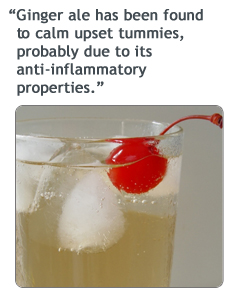 It’s not always easy to separate widely accepted myths about health from scientifically verified facts. In fact, a recent story in the New York Times revealed there are some accepted medical myths that even MDs tend to believe.
For example, docs commonly repeat the idea that turkey is loaded with tryptophan, an amino acid associated with sleep, and they tell patients that explains why a lot of us feel drowsy after a holiday meal. Reality check: turkey doesn’t contain an exceptionally large dose of tryptophan and, besides, the amino acid isn’t readily absorbed due to all the other food usually eaten along with turkey.

According to Indiana University physicians Dr. Aaron E. Carroll and Dr. Rachel C. Vreeman, authors of Don't Swallow Your Gum!: Myths, Half-Truths, and Outright Lies About Your Body and Health , when you feel sleepy after a big holiday meal, it’s most likely the result of decreased oxygen going to your brain because your body is using extra energy to digest excess food.
Curiously, it is turning out that some "old wives’ tales" are being validated by research. Chocolate really may be a feel-good food, for instance. Several studies show it boosts mood. And if your grandma recommends ginger ale or ginger tea for an upset stomach, she’s onto something. Ginger has been found to calm upset tummies, probably due to its anti-inflammatory properties.
Separating medical facts from fiction on Internet
The National Institutes of Health (NIH) advises becoming a cyber-skeptic when you surf the web – always check to see who is providing health information. For the most trustworthy info, look for web sites produced by a branch of the federal government (such as the NIH or National Cancer Institute) or an accredited university, an expert non-profit organization (like the American Heart Association), or a professional organization headed by medical doctors (for example, the American Medical Association’s web site offers health information on a host of topics).
Be careful when you come across web sites run by commercial organizations or an individual pushing supplements or insisting one remedy will cure a variety of illnesses. Remember, if health claims seem too good to be true, they probably are – especially if they aren’t backed up by verifiable facts and research by credible scientists.
Resources for finding accurate health information on the Internet:

How do you score on health facts vs. health myths?To find out, take the quiz below and answer true or false. We’ll select a winner at random from participants with the highest scores to receive a copy of the new book by Dr. Carroll and Dr. Vreeman, Don’t Cross Your Eyes…They’ll Get Stuck That Way! And 75 Other Health Myths Debunked.
Survey Link: https://www.surveymonkey.com/s/2BQH5BC
|